ELEXIS Workshops at LREC2020
Dear LREC colleagues, dear friends,
Unfortunately, I have to announce to you that we cannot hold LREC2020 in May in Marseille. It is a very hard decision, after all the work that has been put towards LREC by all the authors, all the reviewers, and also us organisers, the Local Organisers, the Program Committee and the ELRA Board. As you can imagine it was not an easy decision, but we had to take it because of the gravity of the Covid-19 pandemic and out of respect for your safety and health. We were not prepared, as many other organisers were not, for such a difficult situation, I’m not afraid to admit this. We must act responsibly and for this reason we must announce this now, even if it’s not sure yet what can be done next. We are considering all the options.
The only thing we know for sure is that we will work to publish the Proceedings as planned in May. Your efforts as authors and reviewers will not be lost.
Even if we all know that the value of LREC goes much beyond this, it is in the networking, the crowded poster sessions, the exchange of ideas, also the gathering in the social events (exactly all what we can’t do now).
What will happen next? I tell you the truth, we don’t know yet for sure. We will look into different possibilities, but we are working hard on finding solutions to organize anyway LREC later on in Marseille. We are open to receiving ideas from our community.
We will send you as soon as possible details about the registration fees.
I am sorry to send you such a message. We are living a difficult moment that affects countless aspects of everyday life, full of uncertainties for its evolution. I embrace you all (virtually is still possible).
Stay safe and strong!
Nicoletta
LREC General Chair
| Date |
|---|
| – Workshop and Tutorials |
| – LDL Workshop |
| – GLOBALEX Workshop: Linked Lexicography TRACK 1 – 1st “Monolingual Word Sense Alignment” Shared Task TRACK 2 – 3rd “Translation Inference Across Dictionaries” (TIAD 2020) shared task |
| – Main Conference |
| Location |
|---|
| Palais du Pharo, 58 boulevard Charles Livon 13007 Marseille, France |
ELEXIS will be hosting two pre-conference workshops at LREC 2020!
ELEXIS is supporting the Language Resources and Evaluation Conference, LREC 2020, which will take place in Marseille, France.
Since the first LREC held in Granada in 1998, LREC has become the major event on Language Resources (LRs) and Evaluation for Language Technologies (LT). The aim of LREC is to provide an overview of the state-of-the-art, explore new R&D directions and emerging trends, exchange information regarding LRs and their applications, evaluation methodologies and tools, ongoing and planned activities, industrial uses and needs, requirements coming from the e-society, both with respect to policy issues and to technological and organisational ones.
LREC provides a unique forum for researchers, industrials and funding agencies from across a wide spectrum of areas to discuss problems and opportunities, find new synergies and promote initiatives for international cooperation, in support to investigations in language sciences, progress and innovation in language technologies and development of corresponding products, services and applications, and standards.
7th Workshop on Linked Data in Linguistics (LDL-2020)
Since its establishment in 2012, the Linked Data in Linguistics (LDL) workshop series has become the major forum for presenting, discussing and disseminating technologies, vocabularies, resources and experiences regarding the application of semantic technologies and the Linked Open Data (LOD) paradigm to language resources in order to facilitate their visibility, accessibility, interoperability, reusability, enrichment, combined evaluation and integration.
Past years have seen a growing interest in the application of knowledge graphs and Semantic Web technologies to language resources, and their publication as linked data on the Web. As of today, a large amount of language resources were either converted or created natively as linked data on the basis of data models specifically designed for the representation of linguistic content. Examples are wordnets, dictionaries, corpora — research papers describing the creation of these resources were presented at the previous editions of both LREC and LDL. At the same time, the growth of the LLOD cloud is far from over: new use-cases call for new data models and new resources to be created or converted.
However, even though a critical mass of LLOD is already in place, there is still a pressing need of a robust ecosystem of tools that consume linguistic linked data. Recently started research networks and European projects, such as NexusLinguarum, ELEXIS, and Prêt-à-LLOD are working in the direction of building sustainable infrastructures around LRs, with linked data as one of the core technologies.
By collocating the 7th edition of the workshop series with LREC, we encourage this interdisciplinary community to participate in the dialogue on these issues, to present and to discuss use cases, experiences, best practices, recommendations and technologies among each other and in interaction with the language resource community.
The LDL workshop series has a general focus on LOD-based resources, vocabularies, infrastructures and technologies as means for managing, improving and using language resources on the Web. As technology and resources increasingly converge towards a LOD-based ecosystem, we particularly encourage submissions on Linked-Data Aware Tools and Services and Linked Language Resources Infrastructure, i.e. managing, curating and applying LLOD technologies and resources in a reliable and reproducible way for the needs of linguistics, NLP and digital humanities.
Please get in contact via ldl2020@linguistic-lod.org
GLOBALEX 2020 Workshop: Linked Lexicography
The GLOBALEX 2020 Workshop @ LREC will follow up on the successful GLOBALEX workshops at LREC 2016 and LREC 2018. It is organized by Globalex – Global Alliance for Lexicography, with support from ELEXIS and TIAD, Translation Inference Across Dictionaries shared tasks and workshops.
This third iteration of GLOBALEX workshops at LREC will focus on linking data from lexicographic resources and will highlight aspects related to the automated linking of content among different dictionaries and other lexical sources, in the aim of enhancing linguistic data generation, enrichment and reinforcement.
Besides a section including general research papers, the workshop will include two shared task tracks – one on linking monolingual data and the other on linking bilingual and multilingual data, as follows:
Monolingual Word Sense Alignment – in conjunction with a shared task conducted by ELEXIS.
Task 1 will be evaluated on novel dictionary linking data developed by the ELEXIS project, which will cover linking for the following languages: Danish, Dutch, English, Estonian, German, Hungarian, Irish, Italian, Serbian, Slovene and Russian.
Monolingual word sense alignment is a challenging task of finding matching senses between two dictionary entries and will play a crucial role in the development of new lexical resources. In addition, this task presents a challenging combination of NLP (natural language processing), semantic textual similarity and reasoning in order to find the best alignment across a group of senses.
(Submission deadline: February 14, 2020)
Linking Bilingual and Multilingual Lexicographic Resources – in conjunction with the 3rd TIAD shared task
Task 2 will host the 3rd edition of the Translation Inference Across Dictionaries (TIAD) shared task, of which previous editions were co-located at Language, Data and Knowledge conferences. The aim is to explore methods and techniques for automatically generating new bilingual (and multilingual) dictionaries from existing ones in the context of a coherent experiment framework that enables reliable validation of results and solid comparison of the processes used. In particular, the participating systems will be asked to generate new translations automatically among three languages, English, French, Portuguese, based on known translations contained in the Apertium RDF graph. The inclusion of other language pairs will also be possible for this edition.
(Submission deadline: February 14, 2020)



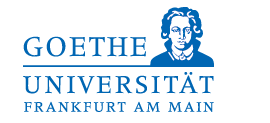
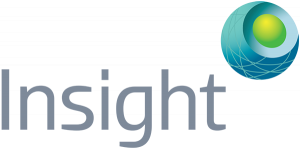




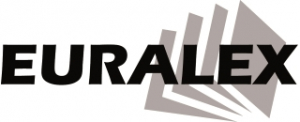
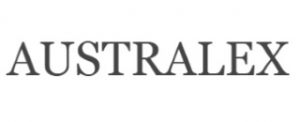
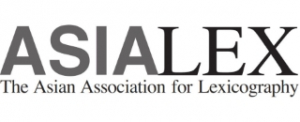
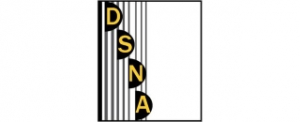


 CC0, Pexels
CC0, Pexels